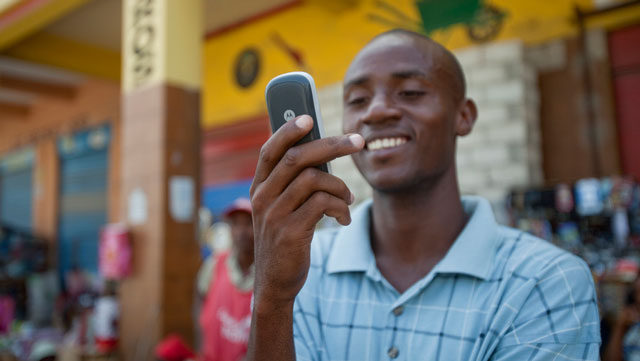
With almost half the world’s population now online, attempts to spread the Internet continue unabated. The likes of Facebook and Google offer data services for “free”, while satellites, drones, and balloons are used to cover those places that traditional technologies have not been able to reach.
Underlying this agenda is a rationale that the spread of the Internet leads directly to economic growth and development. It may be unsurprising to hear such an argument from Silicon Valley types. After all, they profit from the spread of this technology and it’s their mission to “make the world more open and connected”. Simply put, the logic is that the Internet is a democratising force, benefiting everyone, everywhere, in every way.
Very similar ideas are also pervasive in international development circles, especially where Africa is concerned. Go to any high-level meeting where the powerful convene, such as the World Economic Forum or the World Summit on the Information Society, and you will come across similar narratives. They tout the potential of technology, or specifically the Internet, to fuel development and alleviate poverty.
Academics, however, increasingly scoff at this idea of technological determinism — the belief or assumption that technology unilaterally drives and shapes our social world. Rather, they emphasise the intricate back and forth between human action, societies and technologies like the Internet.
What should we make of this huge divide in thinking? Can we safely assume that the Internet has a positive impact on development in every case, for every place on Earth?
An astonishing gap
In a forthcoming paper, our research group at the Oxford Internet Institute attempts to address these questions. We wanted to make a direct comparison between the discourse propagated by powerful actors in international development and the available evidence base. Africa became our scope because the continent was said to have been swept by a “digital renaissance” or “information revolution”, leapfrogging the industrial revolution of the Global North.
We analysed the ICT policies of six African nations and 13 widely noted reports by businesses, development organisations and consultancies. Development has many dimensions, so we limited our analysis to the internet’s impact on economic growth and inequality.
It might not come as a surprise to informed readers that we found visions proposed by governments and development groups to be overselling the Internet’s positive effects. However, even we were astonished by just how wide the gap turned out to be.
Reports and policies argued that the “Internet [was] a tremendous, undisputed force for economic growth and social change.” Academic studies, meanwhile, concluded that the Internet’s impact on development was uncertain and varied, with lower effects in the Global South than in the North.
We were also surprised at just how sweeping and even careless some of the claims were. Several reports used simplistic methods to assess “impact” or “effects”, while advertising their results as definitive. In another example, a report even misquoted a source to support its argument that the Internet was lowering global inequality. This claim actually ran exactly counter to the findings of rigorous studies.

The results of our analysis showed that African governments, international organisations and consultancies nurture grand visions about the impact of Internet connectivity. The Internet is seen to be a positive, inclusive and transformative engine for development.
Yet, these claims are made irrespective of lacking or contrary evidence. So there is a palpable risk that inclusive “digital development” becomes merely a mirage, leading policy and practice to waste time and resources on misguided efforts.
We are not arguing that the Internet is unimportant for development. Instead, we encourage a more nuanced view that acknowledges that the diffusion of Internet connectivity comes with risks and unintended consequences. While value creation is globalised, value extraction often remains concentrated in the Global North.
More broadly, information technologies can exacerbate divides within societies. It would be irresponsible and naïve if we continued pretending that more Internet connectivity would simply lead to better development for everyone, everywhere.
An encouraging sign that such an acknowledgement is possible within international development was the World Bank’s recent World Development Report. It basically admitted that digital development has remained elusive for many “digital have-nots” in the Global South.
Encouragingly, this report was the result of productive discussion between academia and practitioners. If we are to steer the impact of the Internet in the direction that works for the world’s poor and powerless, many more open conversations between digital development believers and sceptics will have to follow.![]()
- Nicolas Friederici is researcher, digital economies, University of Oxford
- This article was originally published on The Conversation

